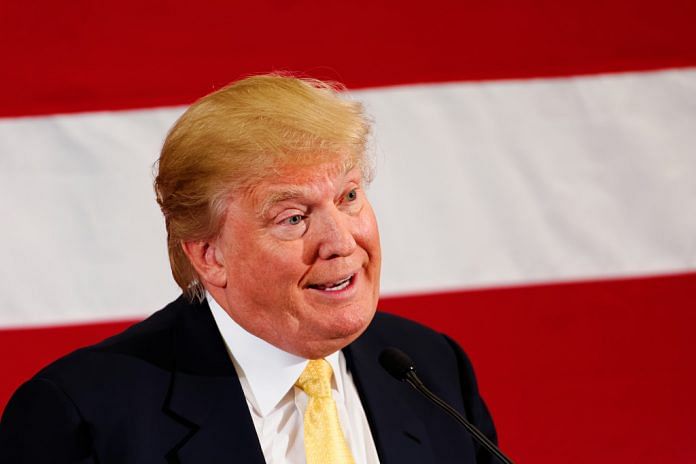The campaigner-in-chief at United Nations
The American president just used the United Nations’ venue – an international body whose purpose is peaceful resolution of disputes – to threaten war on a country of 25 million and give a clear signal that he means to back out of the nuclear deal with Iran (even though he has no evidence that Iran is actually violating the agreement).
The other thing he did in his inaugural speech was a bit of campaign-like self-promotion. The contrast between his predecessor and his approach to the UN could not have been more telling, says this New York Times’ editorial.
The editorial notes that the difference in terms of the presidential bearing is egregious. “Mr. Trump, still obsessed with his victory, asserted that the United States has done ‘very well’ since Election Day and that the military would soon be ‘the strongest it has ever been.’ Mr. Obama spoke of being humbled by the office and determined to ‘act boldly and collectively on behalf of justice and prosperity at home and abroad.”
The sun is finally shining on Greece
The Greeks have seen their Marxist anti-austerity firebrand prime minister calling America his “strategic partner”. Let’s just say they’ve seen it all and survived, writes Roger Cohen. And the worst might be over for a country, which has seen two consecutive quarters of growth through a disaster which saw more than one million refugees transiting the country.
“Tension, once palpable in the streets, has eased. People are inured. They’ve seen everything — a far-right storm, shuttered banks, a referendum vote to reject creditor-imposed austerity that was promptly ignored, governments of every political hue — and survived,” he writes.
And the role of the European Union in Greece’s survival cannot be understated. “A powerful lesson of the crisis is Europe’s resilience,” Cohen writes. “The commitment of countries like Greece and France to the European Union is strong — more so since the British decision to leave. Romance, not reason, lay behind Greece’s miguided inclusion in the euro, but the romance had a kernel of truth: Greece is central to the European idea.”
Defeating ISIS offline is just half the battle won
The territories controlled by the Islamic State may be shrinking. But they’re topping the online game nevertheless, a new study released by the Policy Exchange think tank based in London has revealed. And the US is number two on the list of top consumers of propaganda produced by the Islamic State, with Britain being number five.
“We are certainly not winning the war online,” the report says. “The spate of terrorist attacks the UK suffered in the first half of 2017 confirmed that online extremism is a real and present danger. In each case, online radicalisation played some part in driving the perpetrators to violence. As a society, we are struggling to grasp the extent of the challenge and also appropriate ways of responding. It is clear that the status quo is not working.”
Is Merkel, the ‘climate chancellor’, an eco-vandal?
Soon enough, the title of the world’s leading eco-vandal may go where it truly belongs in both intention and action. To Donald Trump. But for now, it rests with the world’s “climate chancellor”, Angela Merkel, writes George Monbiot in the Guardian. Try looking through Merkel’s reputation as being a paragon of green initiatives, and one can see her disastrous record on environmental policy, he writes.
“The EU decision to replace petrol engines with diesel, though driven by German car manufacturers, predates her premiership. It was a classic European fudge, a means of averting systemic change while creating an impression of action, based on the claim (which now turns out to be false) that diesel engines produce less carbon dioxide than petrol. But once she became chancellor, Merkel used every conceivable tactic, fair and foul, to preserve this deadly cop-out.”
This, he further notes, is her “fatal weakness” – “A weakness for the lobbying power of German industry. Whenever a crucial issue needs to be resolved, she weighs her ethics against political advantage, and chooses the advantage.”
Maryam Sharif has challenges even before she has power
PML-N’s unflattering victory in the NA-120 by-poll in Lahore has had party leaders worried. But they are worried for another reason as well: The ascendancy of Maryam Sharif.
Her rise has not gone without notice, or indeed without criticism. Her premature elevation is part of the problem. Her no-holds-barred approach toward the military establishment is another.
The resistance is within the family dynasty as well. “It is apparent that her growing assertiveness has intensified the power struggle within the party. The cleavage between the two Sharif brothers and their children is no more a secret.”
“For sure, Maryam’s ascendancy is perhaps more divisive at a time when the party needs greater unity in its ranks. What irks many critics inside and outside the party is her sense of entitlement and claim to dynastic power.”



